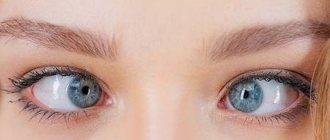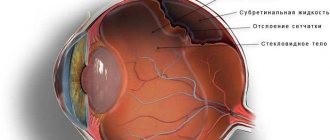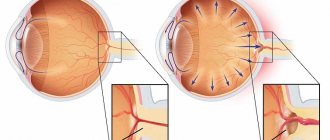Categories of suitability for service in the Ministry of Internal Affairs
Medical examination of candidates is carried out in accordance with Order of the Ministry of Internal Affairs of the Russian Federation dated April 2, 2021 No. 190 (hereinafter referred to as the “Order”).
Determining suitability for service in the Ministry of Internal Affairs is an important task of military medical examination, which is carried out by the military medical commission (MMC).
Based on the results of the medical examination, the IHC issues a conclusion on the candidate’s suitability for service in one of the following characteristics:
- A - fit for service;
- B - fit for service with minor restrictions;
- B - limited use;
- G - temporarily unsuitable;
- D - not fit for service.
The candidate’s ability to enter service in the Ministry of Internal Affairs directly depends on the assigned category:
- Category "A". C indicates the absence of disease. Chronic diseases and physical disabilities are acceptable without disrupting the function of organs and systems, if they do not interfere with the performance of official duties and do not cause damage to health.
- Category "B". Assigned to applicants with minor physical disabilities or chronic diseases with rare exacerbations (no more than once a year). Minimal changes in the functions of organs and systems are possible without interfering with the performance of service.
- Category "B". Issued to candidates due to illnesses that cause some restrictions on the performance of professional duties, but without compromising their health.
- Category "G". Imposes a ban for a certain period of time when, due to an existing illness or injury, the ability to perform service is lost. The violation is temporary and reversible.
- Category "D". He speaks about an unsatisfactory state of health when existing diseases do not allow him to perform the duties of a law enforcement officer.
Restrictions according to the conclusion of the military medical commission correspond to various degrees of suitability for 4 groups of purposes. You can familiarize yourself with them in detail in table No. 1 of Appendix 1 of the Order.
The concept of “fit for military service” does not mean complete health, but allows for the possibility of certain diseases or abnormalities that will not negatively affect the work of a police officer.
What kind of vision do they have for joining the Ministry of Internal Affairs?
› Tips for citizens
21.07.2019
A good level of wages and the availability of social benefits make young people want to serve in the law enforcement system. One of the conditions for admission is to pass a military medical commission. Information about whether people with poor eyesight are accepted into the police force and to what extent its deviations are permissible is of interest to some candidates to assess the chances of passing a medical examination.
Categories of suitability for service in the Ministry of Internal Affairs
Medical examination of candidates is carried out in accordance with Order of the Ministry of Internal Affairs of the Russian Federation dated April 2, 2021 No. 190 (hereinafter referred to as the “Order”).
Determining suitability for service in the Ministry of Internal Affairs is an important task of military medical examination, which is carried out by the military medical commission (MMC).
Based on the results of the medical examination, the IHC issues a conclusion on the candidate’s suitability for service in one of the following characteristics:
- A - fit for service;
- B - fit for service with minor restrictions;
- B - limited use;
- G - temporarily unsuitable;
- D - not fit for service.
To assess the state of health, a citizen undergoes a medical examination consisting of several specialists.
The candidate’s ability to enter service in the Ministry of Internal Affairs directly depends on the assigned category:
- Category "A". C indicates the absence of disease. Chronic diseases and physical disabilities are acceptable without disrupting the function of organs and systems, if they do not interfere with the performance of official duties and do not cause damage to health.
- Category "B". Assigned to applicants with minor physical disabilities or chronic diseases with rare exacerbations (no more than once a year). Minimal changes in the functions of organs and systems are possible without interfering with the performance of service.
- Category "B". Issued to candidates due to illnesses that cause some restrictions on the performance of professional duties, but without compromising their health.
- Category "G". Imposes a ban for a certain period of time when, due to an existing illness or injury, the ability to perform service is lost. The violation is temporary and reversible.
- Category "D". He speaks about an unsatisfactory state of health when existing diseases do not allow him to perform the duties of a law enforcement officer.
The suitability category is determined by the VVK based on the characteristics presented in the table.
Restrictions according to the conclusion of the military medical commission correspond to various degrees of suitability for 4 groups of purposes. You can familiarize yourself with them in detail in table No. 1 of Appendix 1 of the Order.
The concept of “fit for military service” does not mean complete health, but allows for the possibility of certain diseases or abnormalities that will not negatively affect the work of a police officer.
Will people with poor eyesight get hired as a police officer?
Vision testing is carried out according to the Sivtsev table.
The ophthalmologist carefully checks vision, using the Sivtsev table with letters (measurement is carried out at a distance of 5 m), and also applies the refractometry procedure.
It allows you to thoroughly examine the fundus and cornea of the eye to determine possible refractive errors, such as myopia, farsightedness, and astigmatism.
Explanations about the possibility of admission with visual impairment are set out in article Schedule of Diseases No. 34, paragraph “d”, Appendix No. 1 of the Order.
Limitations arise when identifying:
- myopia (myopia) in the range from 3.0 to 6.0 diopters;
- farsightedness in the range from 6.0 to 8.0 diopters;
- astigmatism of any kind from 2.0 diopters to 4.0 diopters.
For these visual impairments, fitness category “B” is assigned to the 4th purpose group. If such vision pathologies as impaired color vision of the III-II degree are detected, the suitability category “B” is assigned to the 3rd group of destination.
If the candidate's ophthalmological examination reveals:
- low degree myopia, not exceeding -3.0 diopters;
- farsightedness less than +6.0 diopters;
- astigmatism of any kind below 2.0 diopters,
then he is assigned category “A” fitness (fit without restrictions).
In accordance with paragraph 3.1 “Additional health requirements” of the Order, vision must be:
- for applicants for positions of the 1st group of destination - 0.6 and higher in both eyes, with a distance correction of 1.0;
- for candidates for positions of the 2nd purpose group - not lower than 0.3 in both eyes, with a distance correction of 1.0.
Persons who have acceptable visual impairments and use lenses should come for examination to an ophthalmologist without them, as the fundus of the eye will be checked. It is better to take glasses or a container with lenses with you. They can be worn after the examination.
When a candidate will definitely not be allowed to serve
Vision can be so weak that even with appropriate correction, the medical commission will never allow persons with the following diagnoses to serve:
- myopia above -6.0 diopters;
- farsightedness more than +8.0 diopters;
- astigmatism more than 4.0 diopters;
- blindness of one eye with visual acuity of the other below 0.3;
- I degree color vision impairment.
Other categories of ophthalmological diseases
When undergoing a medical examination, candidates may be diagnosed with the following visual disturbances: spasm of accommodation (false myopia) and paresis of accommodation.
Spasm of accommodation is common. It is directly related to spasm of the ciliary muscle and manifests itself in the difficulty of changing the focus of the eyes on close or distant objects.
The main reason lies in eye fatigue, which is most often caused by spending a long time in front of the screen of a mobile device, computer or TV.
Secondary factors may be: disruption of the daily routine (little amount of sleep), incorrect posture (lack of blood supply to the vertebrae of the cervical spine), poor nutrition.
Accommodation paresis is characterized by a decrease in the ability to distinguish small details of visible objects at close range.
These visual impairments are temporary, as the process is reversible. If these pathologies are identified, the ophthalmologist prescribes complex treatment, and the candidate is recommended to undergo a second medical examination.
A controversial factor when deciding on the degree of suitability is the laser vision correction performed. If, during the examination, the doctor notices persisting changes in the fundus of the eye, characteristic of a high degree of myopia, he may not admit the candidate.
What kind of vision do they have for joining the Ministry of Internal Affairs? Link to main publication
Source: https://policii.net/sovety/s-kakim-zreniem-berut-v-mvd
Fitness categories in the Ministry of Internal Affairs
The possibility of serving in the bodies of the Ministry of Internal Affairs is determined by passing the mandatory military medical commission (MMC).
According to the order of the Ministry of Internal Affairs No. 190, the requirements for the health of citizens entering service in the Ministry of Internal Affairs differ from the health indicators acceptable for current employees of the authorities.
The document also prescribes separate recommendations for persons entering higher educational institutions under the Ministry of Internal Affairs. On this basis, the document provides three columns for the schedule of illnesses:
- Column I provides requirements for determining the suitability of persons entering service for the first time;
- Column II defines restrictions for citizens applying for enrollment in higher educational institutions under the jurisdiction of the Ministry of Internal Affairs of the Russian Federation;
- Column III is intended for persons who are already employees of bodies of the Ministry of Internal Affairs.
For columns I and III, there are five possible fitness categories:
- A – fully fit for service in the Ministry of Internal Affairs of the Russian Federation;
- B – fit for service with minor restrictions;
- B – limited fit for service in the bodies of the Ministry of Internal Affairs of the Russian Federation;
- G – temporarily unfit for service;
- D – not fit for service in the Ministry of Internal Affairs.
Finally, depending on existing health limitations, a candidate entering service in the Ministry of Internal Affairs may be assigned to one of four destination groups:
- 1st degree of restriction - 1, 2, 3, 4 destination group;
- 2nd degree of restriction - 2, 3, 4 purpose groups;
- 3 degree of restriction - 3, 4 group of destination;
- 4th degree of restriction - 4th group of destination.
IMPORTANT!
The further position that he can occupy in the ranks of the Ministry of Internal Affairs will depend on which destination group the applicant falls into. A complete list of positions by purpose group is presented in Appendix No. 1 to Order of the Ministry of Internal Affairs No. 190.
Will people with poor eyesight be hired into the police?
Among all the diseases presented in the list of Order of the Ministry of Internal Affairs No. 190, articles No. 29-36 are devoted to diseases of the eye and its auxiliary organs. Limitations for the most common vision problems - myopia, farsightedness and astigmatism - are indicated in article No. 34
. According to it, only candidates with the following permissible deviations can be admitted to service:
- myopia of any eye on one of the meridians is more than 3.0 diopters and up to 6.0 diopters;
- farsightedness of any eye in one of the meridians is more than 6.0 diopters and up to 8.0 diopters;
- astigmatism of any kind in any eye with a difference in refraction in the two main meridians of more than 2.0 diopters and up to 4.0 diopters.
With these indicators, the applicant will be assigned to fitness category B-4 (fit for service with 4th degree of restriction).
IMPORTANT!
If the vision indicators differ from those listed for the better (that is, myopia is less than 3.0 diopters, farsightedness is less than 6.0 diopters and astigmatism is within 2.0 diopters), then the applicant may be assigned a higher fitness category.
When will a candidate not be allowed to serve?
In other, more severe cases of refractive error and accommodation, prescribed in Article No. 34, the candidate will be assigned category D (that is, he will be declared unfit for service in the Ministry of Internal Affairs of the Russian Federation).
In particular, the IHC will not allow a citizen to serve in internal affairs bodies if he has the following visual impairments:
- myopia of any eye in one of the meridians from 6.0 diopters and above;
- farsightedness of any eye in one of the meridians from 8.0 diopters and above;
- astigmatism of any kind in any eye with a refractive error difference in the two main meridians of 4.0 diopters and above.
Will people with poor eyesight get hired as a police officer?
The ophthalmologist carefully checks vision, using the Sivtsev table with letters (measurement is carried out at a distance of 5 m), and also applies the refractometry procedure. It allows you to thoroughly examine the fundus and cornea of the eye to determine possible refractive errors, such as myopia, farsightedness, and astigmatism.
Explanations about the possibility of admission with visual impairment are set out in article Schedule of Diseases No. 34, paragraph “d”, Appendix No. 1 of the Order.
Limitations arise when identifying:
- myopia (myopia) in the range from 3.0 to 6.0 diopters;
- farsightedness in the range from 6.0 to 8.0 diopters;
- astigmatism of any kind from 2.0 diopters to 4.0 diopters.
For these visual impairments, fitness category “B” is assigned to the 4th purpose group. If such vision pathologies as impaired color vision of the III-II degree are detected, the suitability category “B” is assigned to the 3rd group of destination.
If the candidate's ophthalmological examination reveals:
- low degree myopia, not exceeding -3.0 diopters;
- farsightedness less than +6.0 diopters;
- astigmatism of any kind below 2.0 diopters,
then he is assigned category “A” fitness (fit without restrictions).
In accordance with paragraph 3.1 “Additional health requirements” of the Order, vision must be:
- for applicants for positions of the 1st group of destination - 0.6 and higher in both eyes, with a distance correction of 1.0;
- for candidates for positions of the 2nd purpose group - not lower than 0.3 in both eyes, with a distance correction of 1.0.
Persons who have acceptable visual impairments and use lenses should come for examination to an ophthalmologist without them, as the fundus of the eye will be checked. It is better to take glasses or a container with lenses with you. They can be worn after the examination.
Do they hire people with poor eyesight to join the police? Requirements for hiring
When entering the law enforcement agencies, candidates undergo a rather strict selection process, including based on health conditions, in this regard, many people ask whether people with poor eyesight and eye diseases are hired into the police.
According to statistics, about 37% of applicants are eliminated at the stage of the medical commission. Poor eyesight can be a serious obstacle to employment in the police.
How vision is checked when passing the commission
Vision testing for applicants for positions in law enforcement agencies is carried out in accordance with Order of the Ministry of Internal Affairs No. 190. The document also reflects a list of diseases, if detected, the candidate may be refused with the wording “unfit.”
In addition to visual acuity, the condition of the cornea and fundus of the eye is examined, and retinal damage associated with injuries is identified. Tests are also carried out to identify color rendition disorders (color blindness). So good vision in itself does not guarantee successful passage of a medical examination.
Vigilance is tested according to Sivtsev’s table from a distance of 5 meters. Ideally, the candidate should name the letters of the first five rows of the table. Candidates with vision 1.0, slight myopia (up to - 0.3), farsightedness (up to + 6), or astigmatism (not higher than 2) are allowed to serve without restrictions.
Additional research methods are also used. If the indicators are 0.1 - 0.2 diopters better than the required ones, the candidate is assigned an increased destination group.
Special conditions
Vision is checked taking into account corrective glasses or lenses (in case of good tolerance, absence of allergic reactions, irritation). For candidates with astigmatism, the maximum permissible difference in glass (lens) power is 2 diopters.
Even if contact lenses are used to correct vision, it is better to come to the ophthalmologist with glasses, since in addition to visual acuity, the fundus of the eye will be checked. In this case, the lenses will have to be removed.
Requirements for various types of law enforcement activities
In accordance with the Order of the Ministry of Internal Affairs No. 190, more stringent requirements are imposed on applicants than on existing employees, including when testing vision.
After passing the commission, depending on the existing restrictions, the candidate is assigned a destination group, which determines the possibility of entering a particular structure of the Ministry of Internal Affairs.
1 group
Applicants assigned to group 1 can work in all law enforcement agencies whose activities involve a high risk (SOBR, FSB). In rapid response units, detention groups (for example, central security points), special forces units, police and traffic police. Provided that:
- vision in both eyes without correction is at least 0.6;
- with correction (with glasses, lenses) 1.0;
- farsightedness – 2.0, astigmatism – 1.0.
Applicants whose vision is below the required standards are assigned destination group 2. In this case, only category A applies - suitability for service without restrictions.
2nd group
Persons who have received group 2 can work in the criminal investigation department and anti-extremism units. In the operational search service, protection of suspects and accused of crimes.
In general, list of positions 2, in fact, is an addition to the first, since many of them are similar.
Requirements:
- vision not less than 0.3, with correction 1.0;
- myopia – the maximum allowable value is 2.0 diopters;
- indicators for farsightedness and astigmatism are equivalent to the requirements for group 1.
When establishing a group, it is possible to assign category B, B. Which means “fit with minor restrictions”, “limited fit”, respectively.
3 group
Candidates with the 3rd group of destination can be employed as heads and deputies of territorial bodies of the Ministry of Internal Affairs. And also work in forensic services and inquiries. In departments whose activities are related to the temporary detention of juvenile offenders. District police also fall under group 3.
Requirements:
- visual acuity for distance (with correction) not lower than 0.6, without correction not lower than 3.0 diopters;
- farsightedness – no higher than + 6.0;
- astigmatism – 2.0.
Group 3 employees can serve both on the territory of the Russian Federation and in representative offices of the Ministry of Internal Affairs in other states.
4 group
The health requirements for determining group 4 are reduced as much as possible, since the list of positions mainly includes positions related to administrative work and logistics.
In this case, in addition to the results of the medical examination, the work experience and education of the applicant are of great importance.
Requirements:
- visual acuity for distance (with correction) not lower than 0.5/0.1 or 0.4/0.4 diopters;
- myopia (without correction) not lower than – 6.0;
- farsightedness up to +8 in both eyes;
- astigmatism up to 0.4.
Important: assignment of a group depends not only on health status, but education and completion/failure to serve in the army.
Eye diseases
In addition to visual acuity, the presence/absence of eye diseases is checked. The full list with explanations is specified in the order of the Ministry of Internal Affairs No. 190 of 02.04. 2021
Candidates are accepted into the police force with restrictions if they have the following diseases:
- diseases of the conjunctiva and eyelids in one or both eyes that do not affect the quality of vision;
- non-progressive consequences of injuries, burns (on one eye);
- myopia in the range of 3-6 diopters;
- farsightedness from 6 to 8 diopters;
- astigmatism with a refraction difference from 2 to 4 diopters;
- visual acuity of one eye is 0.4 with visual acuity of the other in the range from 0.3 to 0.1;
- disturbance of color perception of groups II and III (carried out using tables).
For these violations, category “B” is assigned to group 4. Also, spasm or paresis of accommodation may serve as a basis for restrictions. In the first case, the disease prevents the eyes from changing the focus from close to distant objects. If accommodative paresis is diagnosed, applicants are recommended to undergo the commission again after completing a course of treatment.
As for the consequences of retinal tears (without detachment) as a result of trauma, the decision to assign a destination group is made individually, taking into account the research conducted.
What eye diseases cannot pass a medical examination?
Applicants with serious visual impairments, as well as progressive eye diseases, are not allowed to serve in the police:
- vision below 6 (with myopia), farsightedness - over 8;
- astigmatism more than 4 diopters;
- complete loss of vision in one eye, with the second eye below 0.3;
- I degree color vision impairment;
- retinal detachment;
- progressive glaucoma in both eyes;
- consequences of injuries, burns of the cornea, contributing to progressive loss of vision;
- strabismus, in cases where the applicant cannot clearly see objects with both eyes;
- degenerative progressive changes in the fundus of the eye.
Also, you may not be allowed to serve in law enforcement agencies if you have temporary visual impairment associated with a previous illness or injury.
Is it possible to pass the commission after correction?
A controversial factor in deciding a candidate's suitability is vision correction. The appendix to the order clearly states that: applicants after operations to restore visual acuity are allowed to pass the commission:
- there is documentary evidence that myopia before surgery did not exceed the maximum permissible value (-6.0);
- At least six months have passed since the correction.
In any case, after the examination, not only vision is assessed. If the ophthalmologist detects irreversible changes in the cornea or fundus, the decision on the candidate's suitability is made individually.
Advice: if you have vision problems, you can get a job in the police for positions indicated in the list of 3 and 4 assignment groups.
The fact is that the requirements for current law enforcement officers when passing the commission are slightly lower. Subsequently, transfer to another department with an increased assignment group is possible.
When joining law enforcement agencies, passing a medical examination is mandatory. Only on the basis of the decision of doctors is a decision made on the candidate’s compliance with health requirements. Only after this is employment considered in a particular department.
about checking using tables:
Select it and press Ctrl+Enter to let us know.
Source: https://glaza.online/zren/berut-li-v-politsiyu-s-plohim-zreniem.html
Other categories of ophthalmological diseases
When undergoing a medical examination, candidates may be diagnosed with the following visual disturbances: spasm of accommodation (false myopia) and paresis of accommodation.
Spasm of accommodation is common. It is directly related to spasm of the ciliary muscle and manifests itself in the difficulty of changing the focus of the eyes on close or distant objects.
The main reason lies in eye fatigue, which is most often caused by spending a long time in front of the screen of a mobile device, computer or TV.
Secondary factors may be: disruption of the daily routine (little amount of sleep), incorrect posture (lack of blood supply to the vertebrae of the cervical spine), poor nutrition.
Accommodation paresis is characterized by a decrease in the ability to distinguish small details of visible objects at close range.
These visual impairments are temporary, as the process is reversible. If these pathologies are identified, the ophthalmologist prescribes complex treatment, and the candidate is recommended to undergo a second medical examination.
A controversial factor when deciding on the degree of suitability is the laser vision correction performed. If, during the examination, the doctor notices persisting changes in the fundus of the eye, characteristic of a high degree of myopia, he may not admit the candidate.
source
Do they hire people with poor eyesight in the Ministry of Internal Affairs and the Ministry of Emergency Situations - Website about eye diseases
› Tips for citizens
21.07.2019
A good level of wages and the availability of social benefits make young people want to serve in the law enforcement system. One of the conditions for admission is to pass a military medical commission. Information about whether people with poor eyesight are accepted into the police force and to what extent its deviations are permissible is of interest to some candidates to assess the chances of passing a medical examination.
Categories of suitability for service in the Ministry of Internal Affairs
Medical examination of candidates is carried out in accordance with Order of the Ministry of Internal Affairs of the Russian Federation dated April 2, 2021 No. 190 (hereinafter referred to as the “Order”).
Determining suitability for service in the Ministry of Internal Affairs is an important task of military medical examination, which is carried out by the military medical commission (MMC).
Based on the results of the medical examination, the IHC issues a conclusion on the candidate’s suitability for service in one of the following characteristics:
- A - fit for service;
- B - fit for service with minor restrictions;
- B - limited use;
- G - temporarily unsuitable;
- D - not fit for service.
To assess the state of health, a citizen undergoes a medical examination consisting of several specialists.
The candidate’s ability to enter service in the Ministry of Internal Affairs directly depends on the assigned category:
- Category "A". C indicates the absence of disease. Chronic diseases and physical disabilities are acceptable without disrupting the function of organs and systems, if they do not interfere with the performance of official duties and do not cause damage to health.
- Category "B". Assigned to applicants with minor physical disabilities or chronic diseases with rare exacerbations (no more than once a year). Minimal changes in the functions of organs and systems are possible without interfering with the performance of service.
- Category "B". Issued to candidates due to illnesses that cause some restrictions on the performance of professional duties, but without compromising their health.
- Category "G". Imposes a ban for a certain period of time when, due to an existing illness or injury, the ability to perform service is lost. The violation is temporary and reversible.
- Category "D". He speaks about an unsatisfactory state of health when existing diseases do not allow him to perform the duties of a law enforcement officer.
The suitability category is determined by the VVK based on the characteristics presented in the table.
Restrictions according to the conclusion of the military medical commission correspond to various degrees of suitability for 4 groups of purposes. You can familiarize yourself with them in detail in table No. 1 of Appendix 1 of the Order.
The concept of “fit for military service” does not mean complete health, but allows for the possibility of certain diseases or abnormalities that will not negatively affect the work of a police officer.
Will people with poor eyesight get hired as a police officer?
Vision testing is carried out according to the Sivtsev table.
The ophthalmologist carefully checks vision, using the Sivtsev table with letters (measurement is carried out at a distance of 5 m), and also applies the refractometry procedure. It allows you to thoroughly examine the fundus and cornea of the eye to determine possible refractive errors, such as myopia, farsightedness, and astigmatism.
Explanations about the possibility of admission with visual impairment are set out in article Schedule of Diseases No. 34, paragraph “d”, Appendix No. 1 of the Order.
Limitations arise when identifying:
- myopia (myopia) in the range from 3.0 to 6.0 diopters;
- farsightedness in the range from 6.0 to 8.0 diopters;
- astigmatism of any kind from 2.0 diopters to 4.0 diopters.
For these visual impairments, fitness category “B” is assigned to the 4th purpose group. If such vision pathologies as impaired color vision of the III-II degree are detected, the suitability category “B” is assigned to the 3rd group of destination.
If the candidate's ophthalmological examination reveals:
- low degree myopia, not exceeding -3.0 diopters;
- farsightedness less than +6.0 diopters;
- astigmatism of any kind below 2.0 diopters,
then he is assigned category “A” fitness (fit without restrictions).
In accordance with paragraph 3.1 “Additional health requirements” of the Order, vision must be:
- for applicants for positions of the 1st group of destination - 0.6 and higher in both eyes, with a distance correction of 1.0;
- for candidates for positions of the 2nd purpose group - not lower than 0.3 in both eyes, with a distance correction of 1.0.
Persons who have acceptable visual impairments and use lenses should come for examination to an ophthalmologist without them, as the fundus of the eye will be checked. It is better to take glasses or a container with lenses with you. They can be worn after the examination.
When a candidate will definitely not be allowed to serve
Vision can be so weak that even with appropriate correction, the medical commission will never allow persons with the following diagnoses to serve:
- myopia above -6.0 diopters;
- farsightedness more than +8.0 diopters;
- astigmatism more than 4.0 diopters;
- blindness of one eye with visual acuity of the other below 0.3;
- I degree color vision impairment.
Other categories of ophthalmological diseases
When undergoing a medical examination, candidates may be diagnosed with the following visual disturbances: spasm of accommodation (false myopia) and paresis of accommodation.
Spasm of accommodation is common. It is directly related to spasm of the ciliary muscle and manifests itself in the difficulty of changing the focus of the eyes on close or distant objects.
- The main reason lies in eye fatigue, which is most often caused by spending a long time in front of the screen of a mobile device, computer or TV.
- Secondary factors may be: disruption of the daily routine (little amount of sleep), incorrect posture (lack of blood supply to the vertebrae of the cervical spine), poor nutrition.
- Accommodation paresis is characterized by a decrease in the ability to distinguish small details of visible objects at close range.
These visual impairments are temporary, as the process is reversible. If these pathologies are identified, the ophthalmologist prescribes complex treatment, and the candidate is recommended to undergo a second medical examination.
A controversial factor when deciding on the degree of suitability is the laser vision correction performed. If, during the examination, the doctor notices persisting changes in the fundus of the eye, characteristic of a high degree of myopia, he may not admit the candidate.
What kind of vision do they have for joining the Ministry of Internal Affairs? Link to main publication
Source:
VVK when entering service in the Ministry of Emergency Situations and the Ministry of Internal Affairs: requirements, doctors, tests, passing
15.11.2019
Thanks to the VVK, a huge number of potential firefighters and police officers are eliminated who want to serve in the Ministry of Emergency Situations or the Ministry of Internal Affairs, however, they cannot pass the main selection authority.
What is VVK?
Commission is a military medical commission .
This body is responsible for determining a person’s suitability to serve in a particular position.
Who needs a commission and why?
The military medical commission is needed for all persons who wish to serve in the Ministry of Emergency Situations and the Ministry of Internal Affairs. The VVK determines the degree of a person’s suitability for service. Everyone can be divided into 4 categories:
- Good (no restrictions) . Persons belonging to this group are characterized by ideal health, and they can withstand any physical and psychological stress without problems.
- Passable (with minor restrictions) . Such citizens can serve, however, they may have some minor health problems.
- Good (with restrictions) . Such people have significant health difficulties and this prevents them from fully performing their service.
- Unfit . This group includes everyone who has serious health problems, injuries and illnesses.
Thanks to the VVK, the degree of suitability is determined.
What documents are needed?
- A special direction that has its own established pattern. You can obtain this referral from personnel officers of the Ministry of Emergency Situations or the Ministry of Internal Affairs, depending on the place of service. The validity period of this direction is 3 months;
- Passport of a citizen of the Russian Federation;
- Military ID.
Persons who are applicants, that is, who wish to undergo training at an educational institution of the Ministry of Emergency Situations, but have not yet completed military service in the Armed Forces, also need to prepare a certificate of fitness.
It is especially important to note that persons who have the marks B-3 and B-4 on their registration certificates cannot be allowed to undergo the IHC. Even minimal restrictions are grounds for refusing a person to undergo the IVC.
Also, those who do not have a registration document at all are not allowed to enter the IHC.
What tests need to be taken?
- Clinical blood test. An expanded leukoformula is required;
- General urine analysis;
- Blood tests for syphilis, HIV, hepatitis B and hepatitis C;
- Certificate of vaccination against diphtheria. A vaccination certificate with the appropriate mark is acceptable;
- Fluorography of the thoracic region. Two projections. It is important to provide not only a conclusion, but also pictures;
- ECG (at rest, with load) with interpretation;
- Study of the functioning of the vestibular apparatus;
- Chemical-toxicological testing for drugs.
The examinations are valid for 3 calendar months , and the results of fluorography of the thoracic region are valid for 6 months.
What certificates are needed?
- The entire outpatient card;
- Detailed extract from the document for the last 5 years. When changing residence, it is necessary to take detailed extracts from all medical institutions in which observation was carried out;
- Certificate of illness;
- Certificate of dispensary registration;
- Certificate of observation in the following dispensaries: psychoneurological, narcological, dermatovenerological and tuberculosis.
In most cases, these certificates are paid.
Doctors on commission
A person undergoing VVC will need to see the following doctors:
- Dentist;
- Surgeon;
- Otolaryngologist;
- Neurologist;
- Psychiatrist;
- Dermatologist;
- Ophthalmologist;
- Therapist;
- Gynecologist (for female candidates).
Each of the doctors carries out research as meticulously and scrupulously as possible. If the slightest doubt arises, the person is redirected for additional examination.
When extending service life
- An official referral from the HR department to undergo a medical examination;
- Service characteristics;
- Service ID;
- Outpatient card.
A person must also collect and provide the following information:
- From psychoneurological, narcological, dermatovenerological and anti-tuberculosis dispensaries;
- Fluorography. Two projections.
- Outpatient card or a detailed extract from it for the last 5 years;
- Certificates from a dermatologist and dentist;
- Certificate of allergy history, infectious and parasitic diseases for the last year;
- For women, a certificate from a gynecologist;
- Electrocardiogram “at rest, with load) with interpretation;
- Vaccination certificate or corresponding certificate.
You will also need to take several tests :
- clinical urine test for sugar;
- blood for syphilis (enzyme-linked immunosorbent assay (ELISA), Wasserman reaction (RW));
- biochemical analysis for sugar, cholesterol and BLP.
For firefighters, it is necessary to take an x-ray of the paranasal sinuses.
Each certificate must be certified by the personal seals of doctors and medical institutions.
Preparing to pass the commission
There is no requirement to undergo preliminary training, however, it increases the chances of passing the military military qualifications and getting a job in the Ministry of Emergency Situations and the Ministry of Internal Affairs. Currently, the IHC is guided by two main documents when determining suitability:
- Order of the Ministry of Internal Affairs of Russia dated April 2, 2021 No. 190
“On the requirements for the health status of citizens entering service in the internal affairs bodies of the Russian Federation, and employees of the internal affairs bodies of the Russian Federation, lists of additional mandatory diagnostic studies carried out before the start of a medical examination, documentation forms , necessary for the activities of military medical commissions, the procedure for conducting a control examination and re-examination and the recognition of certain normative legal acts as invalid”; - Order of the Ministry of Emergency Situations of Russia dated September 11, 2021 No. 378
(lost force, replaced by:
Order of the Ministry of Emergency Situations of Russia dated August 30, 2018 N 356
) “On the health requirements of citizens entering the service of the federal fire service of the State Fire Service, and employees of the federal fire service State Fire Service, lists of additional mandatory diagnostic studies carried out before the start of a medical examination of citizens entering service in the federal fire service of the State Fire Service, and employees of the federal fire service of the State Fire Service, the procedure for conducting a control examination and re-examination based on the results of an independent military medical examination and forms of documentation necessary for the activities of military medical commissions in the system of the Ministry of Emergency Situations of Russia.”
Source: https://lasik-ural.ru/optika/berut-li-v-mvd-iv-mchs-s-plohim-zreniem.html
Fitness categories in the Ministry of Internal Affairs
The possibility of serving in the bodies of the Ministry of Internal Affairs is determined by passing the mandatory military medical commission (MMC).
According to the order of the Ministry of Internal Affairs No. 190, the requirements for the health of citizens entering service in the Ministry of Internal Affairs differ from the health indicators acceptable for current employees of the authorities.
The document also prescribes separate recommendations for persons entering higher educational institutions under the Ministry of Internal Affairs. On this basis, the document provides three columns for the schedule of illnesses:
- Column I provides requirements for determining the suitability of persons entering service for the first time;
- Column II defines restrictions for citizens applying for enrollment in higher educational institutions under the jurisdiction of the Ministry of Internal Affairs of the Russian Federation;
- Column III is intended for persons who are already employees of bodies of the Ministry of Internal Affairs.









